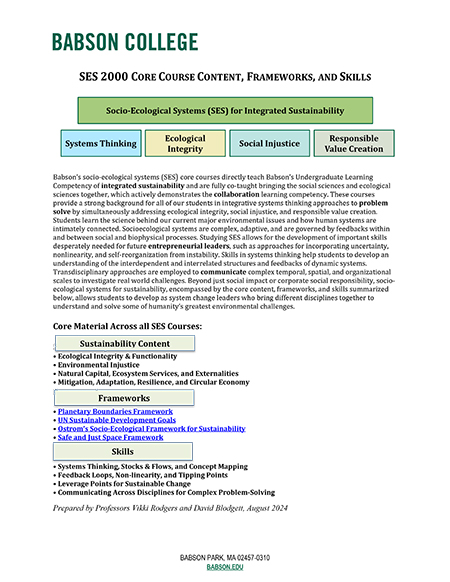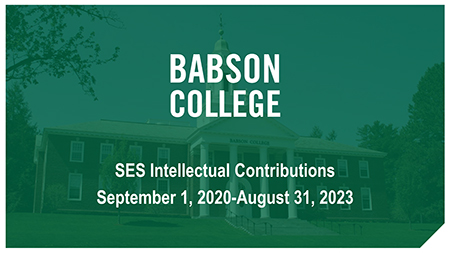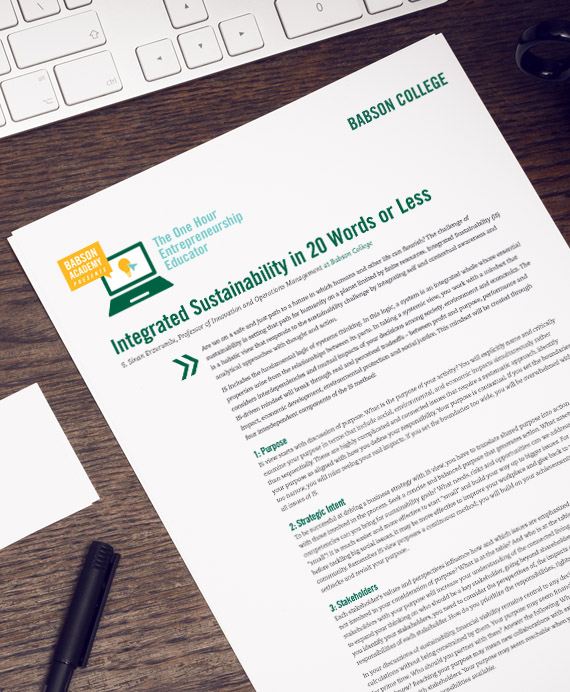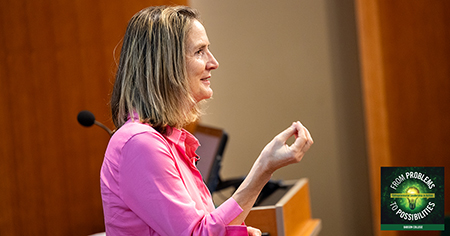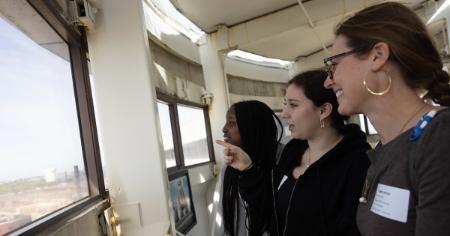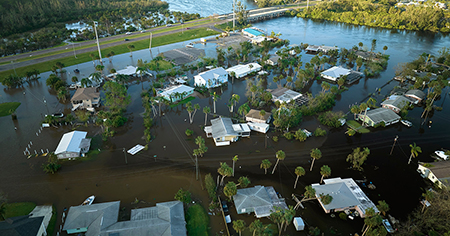Babson’s socio-ecological systems (SES) core courses provide a strong background for future entrepreneurial leaders in integrative systems thinking approaches to problem solve by simultaneously addressing ecological integrity, social injustice, and responsible value creation.
Beyond just social impact or corporate social responsibility, socio-ecological systems for integrated sustainability allows students to develop as system change leaders who bring different disciplines together to understand and solve some of humanity’s greatest environmental challenges.
A 2024 article published by the Academy of Management and Learning Education (AMLE) calls for management education to shift and focus on the socio-ecological systems, which Babson College faculty have been doing since 2020. The AMLE article recognizes the intricate interdependence between businesses, society, and ecological systems. This perspective highlights that businesses cannot thrive in isolation from the natural environment or societal well-being, as both are foundational and essential to economic sustainability. By integrating ecological considerations into management education, this approach aims to shift from resource-dependent practices towards a model that fosters human and ecological flourishing. This approach encourages future managers to consider the broader impacts of their decisions on the environment and society, promoting a more sustainable and just future.
